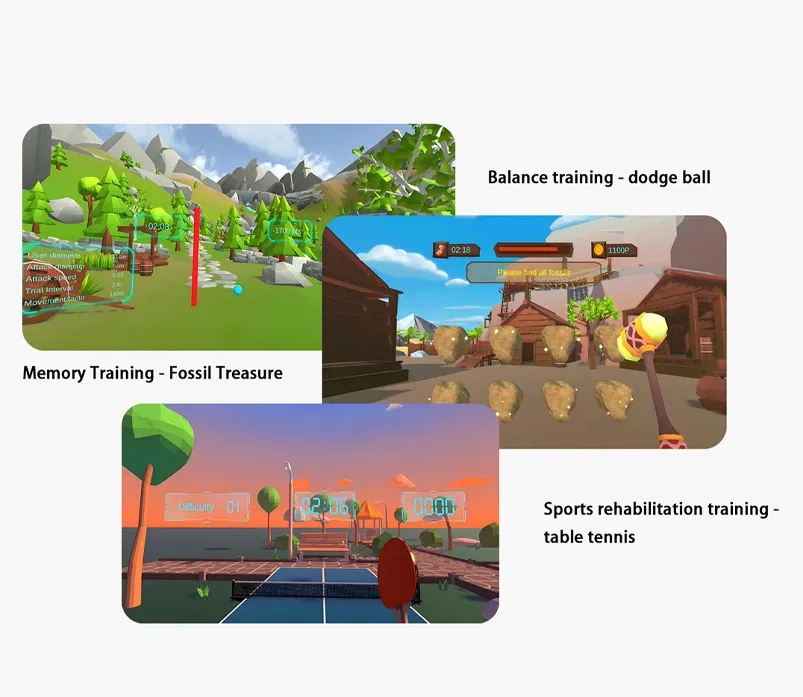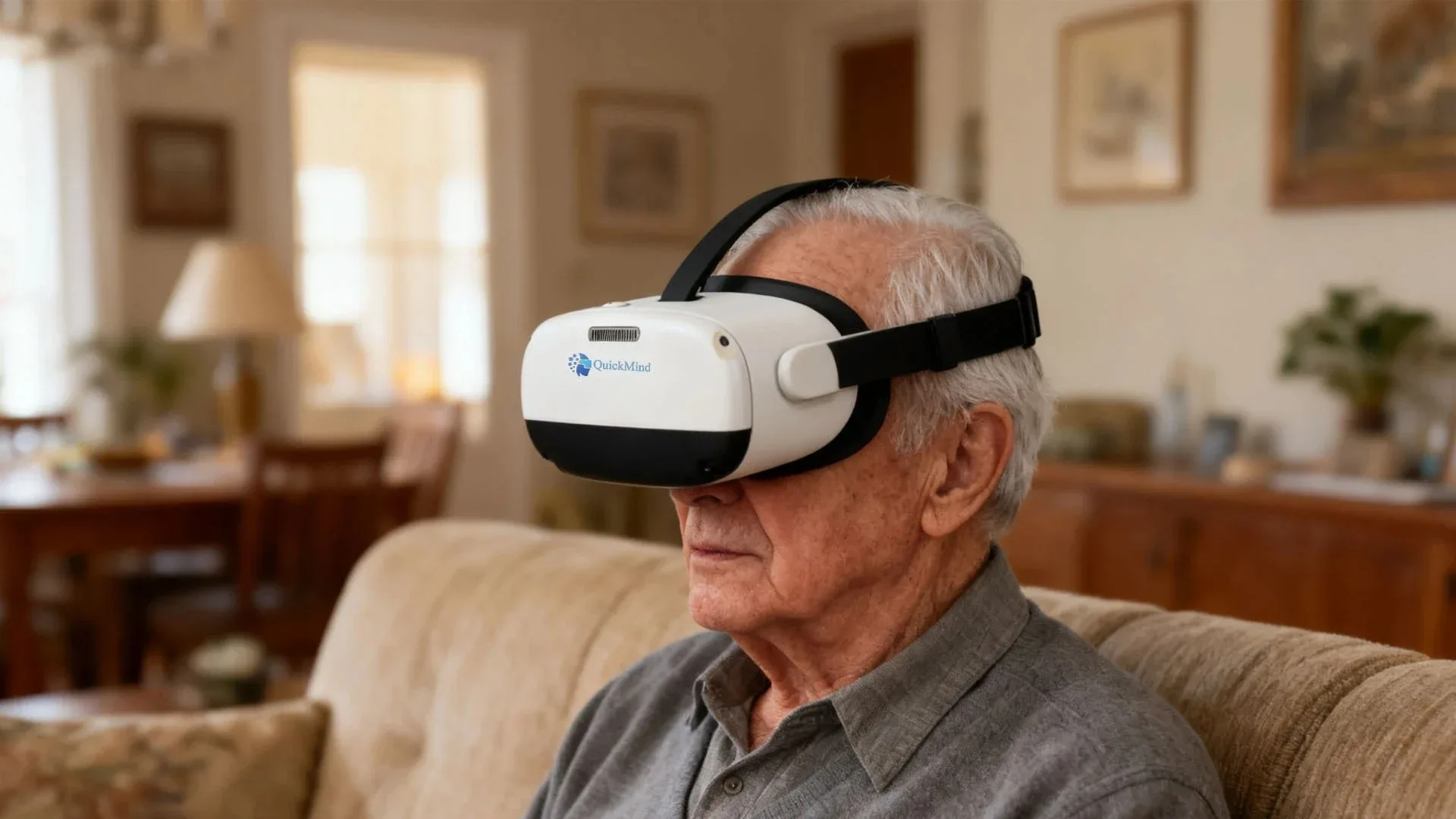
Growing studies reveals that immersive digital environments approach can noticeably upgrade the health of users suffering from memory disorders. By conveying them to relaxing scenes, VR creates a exceptional possibility for neural stimulation, sentimental adjustment, and group participation. Multiple examinations have shown that VR therapy can decrease fretfulness, nervousness, and sadness in dementia patients while also elevating their recall, engagement, and expressive competencies.
- VR supports persons with dementia to retrace fond remembrances through interactive illustrations.
- Moreover, it can allocate a risk-free and encouraging space for people connection, enhancing a notion of union and belonging.
- Clinicians assert that VR therapy has the prospect to transform dementia support by presenting new and progressive avenues to address the complicated issues faced by persons diagnosed with this disorder.
Electronic Health Solutions for Mental Boosting in Alzheimer's
Growing virtual interventions are exhibiting benefits in the territory of mind sharpening for clients managing cognitive Alzheimer's illness. These interfaces utilize virtual systems to boost brain performance and maybe retard the evolution of the affliction. Motivating activities, personalized guidance, and neurological training are some representations of procedures being studied in this evolving territory. While inquiries are proceeding, digital therapeutics furnish a potential roadway for augmenting the welfare of those experiencing Alzheimer's dementia.Novel VR Techniques for Alzheimer's Intervention
Touching clients suffering from Alzheimer health issue, the continuous loss of mind function and thinking skills can severely weaken their capability to socialize with the external world. This harmful illness often generates in seclusion, agitation, and a diminished individuality. Up-to-date improvements in virtual reality technology introduce a trailblazing pathway to counteract these concerns by establishing immersive environments that can encourage the brain and refresh cognitive function.
Virtual scenario worlds developed specifically for Alzheimer's affected people can move them in nostalgic places, such as their juvenile habitat or a treasured public park, recalling positive memories and reducing anxiety. Through interactive exertions, these virtual scapes can also stimulate cognitive abilities like mind retention, concentration, and logical processing.
The beneficial impacts of virtual reality in Alzheimer's treatment are enormous. Early examinations have demonstrated positive results, with subjects showing improvements in cognitive faculty, mood, and overall quality of life. As this development evolves, it holds the key to transforming the way we approach Alzheimer's disease, delivering a new pathway for care and enabling.
VR Reminiscence Therapy for Alzheimer's Patients
Reminiscence therapy is a commonly used technique used to enhance cognitive function and psychosocial health in individuals with Alzheimer's disease. This time-honored form of therapy involves engaging patients to recollect past experiences, often through interchange. However, a advanced approach is emerging: VR-mediated reminiscence therapy.
This immersive tool utilizes virtual reality headsets to shift patients in virtualized environments that arouse memories from their past. By engaging in these digital reconstructions, individuals with Alzheimer's can relate with their past in a noteworthy way.
Harnessing VR to Improve Cognitive Abilities in Dementia
Virtual reality (VR) is emerging as a up-and-coming tool in the fight against dementia, affording innovative ways to activate memory and cognition. By forming immersive simulations, VR can support individuals with dementia remember memories, engage in meaningful activities, and elevate cognitive skills. Studies have confirmed that VR interventions can cause significant improvements in memory recall, attention, and orientational awareness. Moreover, VR provides a protected and supportive space for individuals with dementia to explore, reducing feelings of isolation and nervousness.
- Also, VR can be tailored to individual needs and preferences, allowing amplified levels of connection.
- Acknowledging the possibilities of VR, ongoing research is needed to fully understand its long-term efficacy in dementia care.
Reviving Recollections, Restoring Bonds: VR's Influence on Alzheimer's Social Interaction
Artificial reality is emerging as a groundbreaking instrument in the discipline of brain degenerative illnesses. By creating participatory and collaborative realities, VR has the capacity to spark memories, strengthen social interaction, and elevate the overall quality of life for individuals diagnosed with Alzheimer's. Prominently an compelling aspects of VR is its ability to move users to classic settings and experiences from their past. Whether it's a tour of VR a childhood home or a imitation of a beloved holiday, these virtual explorations can summon happy memories and bolster cognitive power. Furthermore, VR can support social interaction by coupling individuals with others who share similar preferences. This can be particularly beneficial for people with Alzheimer's who may experience challenges with traditional social participation. By maintaining a safe and stimulating virtual space, VR can alleviate feelings of isolation and loneliness, which are common among participants struggling with Alzheimer's. Overall, VR holds immense opportunity for innovating the lives of clients with Alzheimer's by reawakening memories, recovering connections, and enhancing their quality of life. As technology keeps on expand, we can expect even more revolutionary applications of VR in the field of dementia care.Leveraging Cognitive Training: Implementing VR Techniques for Alzheimer's Aid
Digital virtual environments is rapidly emerging as a revolutionary tool in the realm of cognitive training, particularly for persons suffering from Alzheimer's disease. By immersing patients in interactive and engaging virtual environments, VR-based interventions can enhance cognitive functions such as memory, attention, and problem-solving. These games typically incorporate elements of storytelling, exploration, and social interaction, making the training process exceptionally satisfying. Studies have shown that VR-based cognitive training can lead to marked improvements in cognitive performance, conceivably delaying the progression of Alzheimer's symptoms. Moreover, VR provides a safe and controlled environment for patients to practice new skills and reinforce their confidence.
- Game-driven approaches in VR training can make it highly engaging and attractive for individuals with cognitive impairments.
- VR simulations can offer true-to-life scenarios that promote and boost cognitive functions.
- Personalized VR experiences can cater to particular desires and modalities.
Harnessing Virtual Settings for Dementia Relief
Captivating simulated worlds offer a novel and optimistic avenue for clients facing memory loss. These solutions can simulate familiar environments, allowing those affected by cognitive decline to recollect cherished memories and support a sense of consolation. By alleviating the difficulties of dementia, VR environments have the capacity to advance quality of life for both patients and their families.
- Research indicate that VR applications can meaningfully impact cognitive function, behavioral well-being, and even physical abilities in individuals with dementia.
- Moreover, VR creates a safe and supervised environment for interaction, reducing the risk of danger.
- What is more, VR can advance social associations by allowing individuals with dementia to connect in artificial activities with others.
Innovative VR for Alzheimer's Early Recognition and Therapy
Alzheimer's condition presents a complicated issue, often being overlooked in its early stages. Nevertheless, virtual reality (VR) is materializing as a state-of-the-art tool for early discovery. Through immersive computer-generated settings, VR can test cognitive operation in ways that traditional methods struggle to. This capacity allows for quick response strategies, potentially slowing disease progression and boosting the quality of life for individuals with Alzheimer's.
- Immersive virtual tests evaluate cognitive functions like recall and focus in protected settings.
- Adaptive virtual reality tools motivate subjects to engage in neural stimulation efforts.
- Virtual environments can provide a supportive and engaging platform for individuals with Alzheimer's to connect.
Enhancing Dementia Communication and Social Interaction Via VR
{In the realm of dementia care, innovative technologies are emerging to boost the lives of participants managing dementia. Virtual reality (VR) is one such tool that holds immense capability for closing social and communicative divides common in dementia patients. By creating immersive and engaging virtual environments, VR can animate cognitive function, reduce behavioral issues, and ultimately improve the overall well-being of individuals with dementia.
VR experiences tailored to dementia care can range from remembering therapy sessions that fade patients back into earlier life scenes, to interactive games that promote social interaction and cognitive challenge. Furthermore, VR has the power to connect persons managing dementia with social groups, regardless of physical gaps, fostering a sense of belonging.
- VR can help in reducing agitation and anxiety by providing a calming and engaging environment.
- Assessments have shown that VR interventions can lead to improvements in cognitive function, mood, and social interaction in clients experiencing cognitive decline.
- As technology develops in evolve, we can expect even more innovative and beneficial
